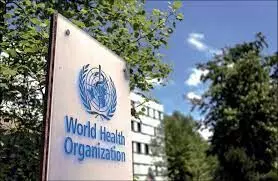
WHO flags four Indian cough syrups after 66 children die in Africa
text_fieldsGeneva: Four Indian-made paediatric cough syrups have been flagged by the WHO after 66 children died in the West African nation of The Gambia. The UN Body issued an alert for "contaminated" medicines.
In a series of tweets, the international health body said the syrup has been potentially linked with acute kidney injuries and 66 deaths. "The loss of these young lives is beyond heartbreaking for their families. The four medicines are cough and cold syrups produced by Maiden Pharmaceuticals Limited, in India. WHO is conducting further investigation with the company and regulatory authorities in India," said Director-General Tedros Adhanom Ghebreyesus.
The WHO Medical Product Alert said these four substandard products - Promethazine Oral Solution, Kofexmalin Baby Cough Syrup, Makoff Baby Cough Syrup, and Magrip N Cold Syrup - were reported to it in September. The organisation resorted to laboratory analysis to confirm that they contain unacceptable amounts of diethylene glycol and ethylene glycol which are toxic to humans.
Their toxic effects can manifest as abdominal pain, vomiting, diarrhoea, inability to pass urine, headache, altered mental state, and acute kidney injury. "They are especially unsafe for children. All batches of these products should be considered unsafe until they can be analysed by the relevant national regulatory authorities."
The WHO said these products may have been distributed to other markets informally and it is important to detect and remove them before further harm is inflicted. The international body requested increased surveillance and diligence within the supply chains of countries and regions likely to be affected.






















